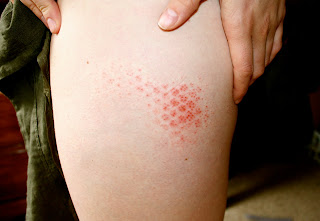





I grew up listening to Lisa Ling talk about the important issues in foreign countries that made me think hard about different ways of life. One of her first assignments overseas was in the heart of Afghanistan during the civil war in 1994. At the time she admits she didn't even know where Afghanistan was on the map. Her selfless and sometimes headless attitude toward getting the story has helped create a priceless dialogue for many of the voiceless around the world. She reminds me that it's OK to ignore the shallow broadcast media channels and shun local, easy stories. From her own life I feel like it's Ok, even important, to search out the hard-hitting journalism that may take a lot of work, or sometimes may require a step outside my comfort zone in order to affect lives.
I had the incredible opportunity and pleasure to hear her speak tonight in Columbia, Missouri. Within her speech, which covered the most influential stories in her life (the lost girls of China, the civil war in Afghanistan, following drug trafficking in Colombia...), she also read a personal poem about a story she covered on child brides while in Ethiopia. In accordance with the subject matter it's appropriately sensitive and graphic. At the end of her speech, she faced an auditorium full of students who were already beginning to think about their busy class schedules and talk about their plans for the weekend and she said to them, "Now that you know, you can't pretend that you don't." It's a statement that has resonated with me for awhile now.
|
| |
|
|

 She's staring at me with big, pebble-shaped brown eyes framed by baby lashes. They bounce up, down, up, down, as if she's riding a camel in the desert. Instead she's tucked into the full wrap of the woman in front of me, whose smooth face and strong arms make her appear to be in her early 20's.
She's staring at me with big, pebble-shaped brown eyes framed by baby lashes. They bounce up, down, up, down, as if she's riding a camel in the desert. Instead she's tucked into the full wrap of the woman in front of me, whose smooth face and strong arms make her appear to be in her early 20's.
Looking through my pocket travel journal from this summer I'm nostalgic but also frustrated that all the little stories I hoped would fill my blog didn't always come to fruition in print. I find myself wondering where that short story is about the man I met at Reggae night who declared that the U.S. was the best place for a black man. I'm searching in my journal for the passage about my first walk to work through the streets filled with hollowed out vans and shells of homes and the palpable feeling of all eyes on me as I made my way through them.
A part of me mostly worries that if I don't form the words on a page I will let those tiny moments slip passed my memory. So, I'm digging into my journal and bringing forth those moments as best I can.
I'm also changing the layout of my blog once again, for the nth time, due to the incessant headache I get when it loads on my page and I see white letters floating brightly in a deep black backdrop. Doesn't everyone feel like they're falling down the black hole underneath Eugene's passenger seat in Wristcutters? Well I do. And I'm slightly embarrassed that it also resembles a 14-year-old's Myspace page. Since it is my blog and I'm probably the only reader besides my grandmother - I'm doing it for us.

